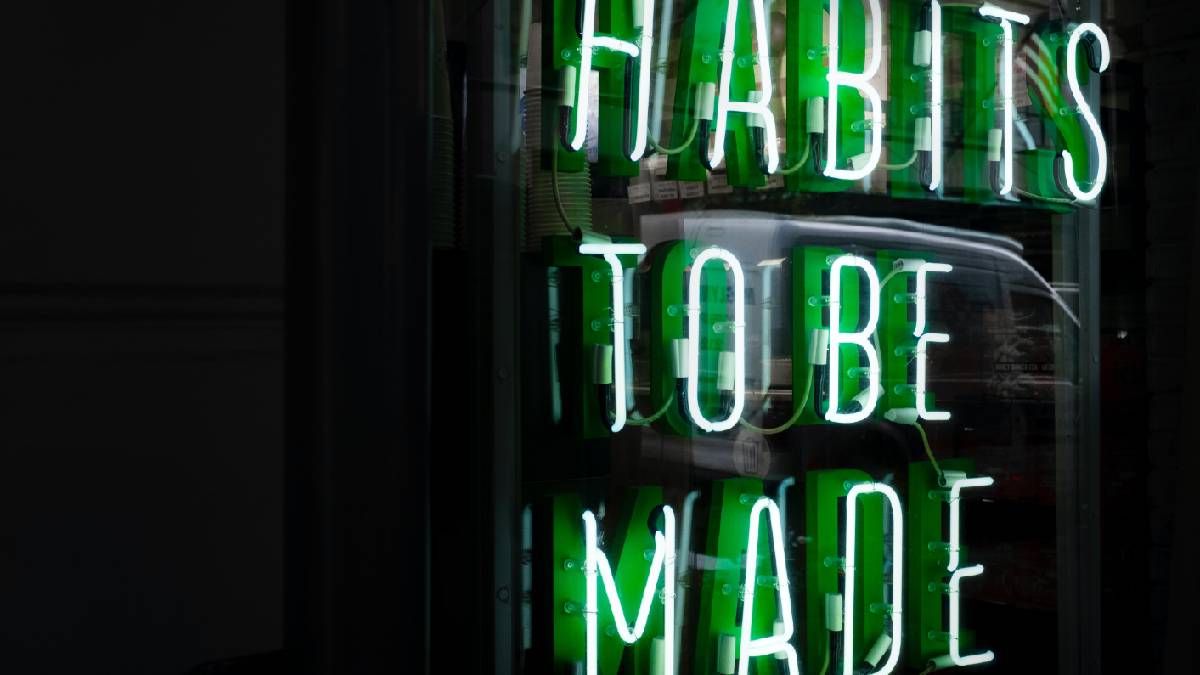
One Method To Help You Create Better Habits
A new study explores the power of situational cues when planning for the future.

By Mark Travers, Ph.D. | April 5, 2022
A new study published in PLOS ONE explains how one can make long-term behavioral changes by using 'if-then' action planning instead of relying purely on motivation or willpower.
"Habits result from repeated past experiences of executing a specific behavior in a particular situation," says psychologist Torsten Martiny-Huenger from UiT The Arctic University of Norway. "An open question, however, is how novel behaviors become habits. We do not have the prior experiences that make them habitual. So, how are they formed?"
The researchers hypothesized that people form new habits by imagining themselves performing a specific behavior in a specific situation — in other words, by creating stimulus-response links in their minds.
When carrying out a future-oriented action, people typically take one of three approaches, according to Martiny-Huenger. Here's an illustration:
Assume you agree to do a favor for a friend, such as sending a web address that you have saved as a bookmark on your home computer. You won't be able to access the bookmark right away. How are you able to finish the task several hours later? Here are three possibilities:
- The first method is to keep repeating it to yourself verbally (i.e., keep it active in working memory). However, given the many demands of our daily lives, it is unlikely that we can maintain such focus for an extended period of time.
- Prospective memory researchers offer another possible mechanism. They contend that such an intention (sending the bookmark later) activates a monitoring process of which we are only dimly aware. However, it is difficult to determine whether or not a subconscious monitoring process exists.
- The third option is dependent on the brain's ability to create associative links. The decision to send the web address could be influenced by a situational cue. For example, while reading emails on your home computer, you may come across a reference to the friend in one of the emails (situational cue). This cue then brings back the memory of having to send the bookmark.
The authors found evidence to suggest that the third possibility is the primary method through which memories are prompted and new habits are formed. Furthermore, they suggest this method can be used strategically by people to improve memory and habit formation.
For example, when receiving the web address request, one can think repeatedly, "the next time I start my home computer, I'll first send my friend the web address." Instead of relying on some coincidence to remind one about the intention, one can strategically link the intention to a situation.
"Research indicates that making such if-then plans — which are nothing more than verbal situation-response links — facilitate remembering," explains Martiny-Huenger.
The researchers also discovered that people who scored high on the personality dimension of conscientiousness were particularly adept at performing this type of if-then reasoning. According to Martiny-Huenger, this is not surprising because conscientiousness is characterized by habitual planning behaviors such as making lists and using a calendar.
"Our interpretation of this result is that thinking in a situation-response format is one of the cognitive procedures that conscientious people are habitually doing," says Martiny-Huenger. "This intuitive use of a beneficial strategy contributes to being more successful in day-to-day self-regulation."
In practice, when dealing with behaviors that we cannot immediately execute, the authors advise people to rely less on motivation and willpower and more on associative cues.
"The practical advice is to link the intended behavior to situational cues that provide good opportunities to initiate them," says Martiny-Huenger. "When you want to get a little more physically active, for instance, then repeatedly think to yourself, 'When I'm waiting in front of the elevator, I'll turn around and use the stairs.' Such if-then planning is not magic and it will not lead to successfully implementing the intended behavior every time, but it will increase the likelihood of completing them."
A full interview with Torsten Martiny-Huenger can be found here: One tip you can use to form long-term good habits
